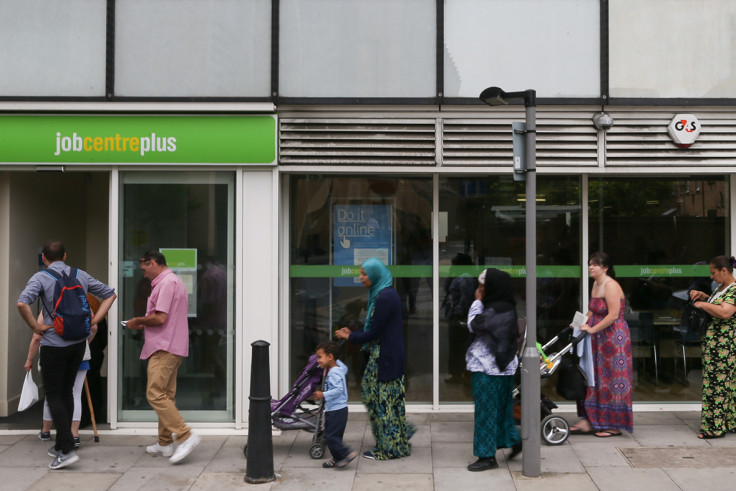UK employment holds steady at record levels
Jobless rates hold at 11-year lows but average earnings look set to be squeezed as inflation rises.

UK unemployment has increased even though the number of people in work is at record levels, official figures show.
UK unemployment increased by 10,000 to 1.66m in the quarter to August, according to the Office for National Statistics (ONS).
However, the ONS said the overall unemployment rate remained unchanged at a near 11-year low of 4.9%.
"These figures show that employment continued to grow over the summer and vacancies remain at high levels, suggesting continuing confidence in the economy," the ONS said.
Average earnings increased by 2.3% in the year to August, 0.1% down from the previous month.
Risings in earnings have been modest in recent years, but this has been offset by low inflation.
But yesterday (18 October) official data showed that inflation jumped to 1% in September, from 0.6% in August, raising fresh concerns that the UK could be heading for a period of rising inflation and squeezed living standards.
The claimant count, including those on Jobseeker's Allowance, also increased last month – up by 700 to 776,400. It was the sixth time in the last seven months that the figure has increased.
Employment was up by 106,000 in the latest quarter to almost 32 million, the highest since records began in 1971.
The ONS noted that the statistics cover two months after the European Union referendum result.
Mixed data
IHS Global Insight chief UK and European economist Howard Archer called the ONS data "somewhat mixed".
Archer pointed out that while employment growth was "decent" at 106,000 in the three months to August, this was down from 174,000 in the three months to July and 172,000 in the three months to June. Meanwhile, unemployment rose by 10,000 in the three months to August.
He said: "There are signs of cracks appearing in the UK labour market, after resilience in the run-up to, and immediate aftermath, of June's Brexit vote."
TUC General Secretary Frances O'Grady said: "Pay growth remains weak by historical standards, and inflation is getting higher. The worry is that families are heading towards another fall in living standards."
Economists at Capital Economics added: "We think a rise in the unemployment rate will prevent wage growth from accelerating much further in coming months. Accordingly, while the recent strength in economic activity data has lowered the chances of further monetary easing, we still expect another cut in Bank Rate to 0.10% in November."
Employment Minister Damian Hinds said: "Once again it's great news for Britain as the employment rate remains at a record high, with more than 31.8 million men and women in work.
"But there's more to do, particularly when it comes to supporting young people into employment.
"We want to build a solid base for the future; that's why today I have announced the rollout of our Jobcentre Plus Support for Schools scheme in England, which will give tens of thousands of young people help in taking their first steps into the world of work."
© Copyright IBTimes 2025. All rights reserved.






















